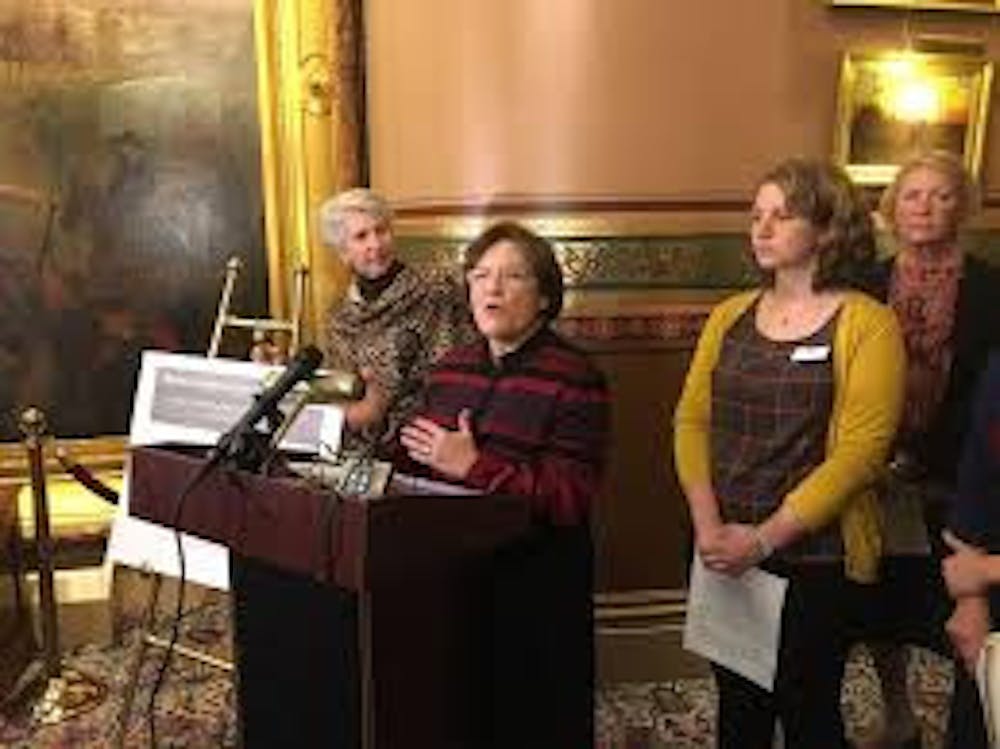MONTPELIER — It is common knowledge that men are paid more than women over their lifetimes in the United States. You might be aware of the widely reported statistic that, in 2016, women working full time in the United States typically made only 82 cents for every dollar earned by men. Why does a national gender wage gap of 18 percent exist? What have legislators done to curtail salary inequity? What more can they do?
In Vermont, a state with a gender wage gap of 16 percent, a bipartisan group of senators has identified an issue which they believe exacerbates salary inequity in the state: employers asking job applicants about their salary history. Last January, they proposed legislation that would prohibit the practice.
“Too often women unknowingly perpetuate inequitable compensation when they’re asked to provide their salary history in the job interview process,” Windsor County Senator Alison Clarkson said at a press conference on Jan. 12. Banning questions about salary history may reduce the gender pay gap by ensuring that low pay does not follow women from job to job and compound over time. Clarkson and other proponents of the Vt. bill argue that women revealing their salary history negatively influences the offers made by interviewers.
The legislation also mandates the collection of new data comparing the compensation of men and women in Vt. The data should provide a more accurate picture of inequity in the state, and help identify employers that pay men more than comparably experienced women for doing the same job.
The Equal Pay Act, which requires employers to provide men and women equal compensation for equal work, became law in 1963. Since then, American women have fought to make the act’s promise a reality. Their efforts have yielded results—consider that, prior to 1963, women earned 54 cents for every dollar a man made.
Despite the progress, implementing the Equal Pay Act has proven difficult, and, according to the United Nations, it could take 70 more years until the U.S. gender pay gap finally closes. Many state legislatures have sought to improve enforcement of the Equal Pay Act, and expedite the end of pay inequality.
Windham County Senator Becca Balint echoed the difficulties involved in enacting the Equal Pay Act. “Laws meant to combat pay inequity and other workplace discrimination only work when there is enforcement,” Senator Balint told Vermont Public Radio. “And enforcement can only happen when there is complete and accurate data.”
The National Partnership for Women & Families has used census data to illustrate how the gender wage gap hurts Vermont’s economy. According to their research, because women in Vermont are paid just 84 cents for every dollar paid to men, Vermont women lose a combined total of nearly $1.5 billion every year.
Cary Brown, the executive director of the Vermont Commission on Women, an advocacy group for gender equality, told VT Digger that the wealth lost due to the wage gap “is around 3.3 percent of the state’s GDP.” The money could bolster the state economy and provide security to the more than 20,000 Vermont households headed by women, 23 percent of which are in poverty. As Governor Phil Scott noted in a press conference last April, eliminating the income disparity between men and women would reduce poverty in the state by 53 percent.
The human costs of the gender wage gap in Vermont cannot be overstated. Salary inequity hurts women. For many women, it determines whether or not they have enough money for food, mortgages and utilities payments, rent, child care, and tuition. The consequences of Vermont’s fight to end its gender-based pay gap are real and far-reaching.
Vermont Furthers Equal Pay Act

Comments


